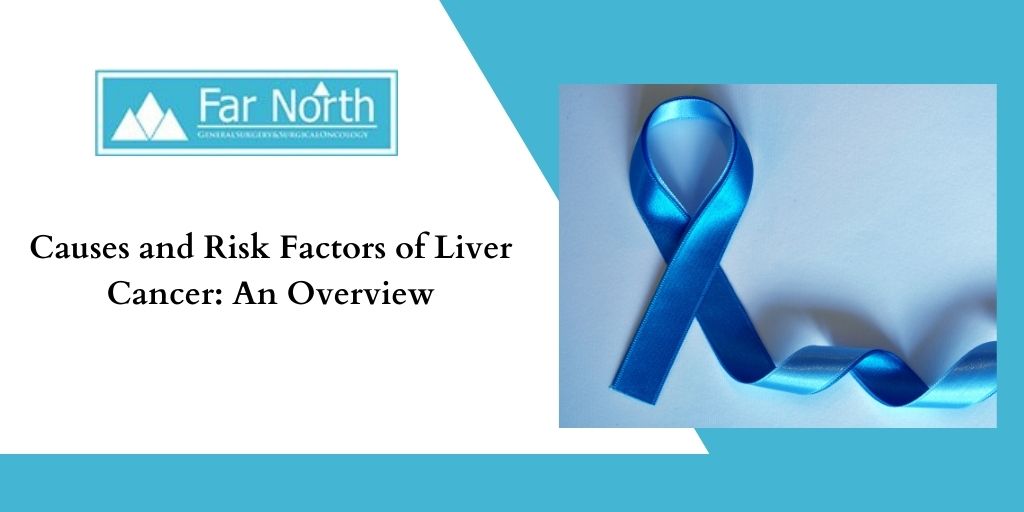Liver cancer occurs when cells in the liver grow uncontrollably, forming a tumor. There are different types of liver cancer, including hepatocellular carcinoma (HCC), cholangiocarcinoma, and angiosarcoma.
Among these, HCC contributes to 75% of liver cancers in adults. Though the exact cause is unclear, several factors can increase your risk of liver cancer. Therefore, knowing your risk factors can help you make informed lifestyle changes and take preventive or corrective measures in time.
Factors That Put You at Risk for Liver Cancer
- Cirrhosis
Cirrhosis is a disease in which healthy liver cells are damaged and replaced by scar tissue, increasing your risk of liver cancer.
- Chronic Viral Hepatitis
Long-term infection with hepatitis B virus (HBV) and hepatitis C virus (HCV) can lead to liver cirrhosis, thus causing liver cancer.
- Obesity
Being obese/overweight can cause cirrhosis and fatty liver diseases, making you more susceptible to liver cancer.
- Non-alcoholic Fatty Liver Disease
This is another condition that is common in obese people. People with a subtype of this condition, called non-alcoholic steatohepatitis (NASH), may develop cirrhosis that might escalate into liver cancer.
- Excessive Alcohol Consumption or Tobacco Use
Consuming excessive alcohol or smoking can lead to cirrhosis or liver cancer.
- Type 2 Diabetes
Type 2 diabetes can cause liver cancer in patients who are either obese or prone to other risk factors, such as chronic viral hepatitis and excessive alcohol consumption.
- Primary Biliary Cirrhosis (PBC)
It is an autoimmune condition that damages and destroys the bile ducts, causing cirrhosis. People with advanced PBC can develop liver cancer.
- Vinyl Chloride and Thorium Dioxide (Thorotrast)
You may be at risk of liver cancer if you are regularly exposed to these chemicals.
- Some Rare Diseases
Certain diseases can increase your risk of liver cancer, such as:
- Wilson disease- a genetic disorder resulting in accumulation of copper that affects the brain and liver
- Glycogen storage diseases (GSD)- a rare condition that changes how the body uses and stores glycogen, ultimately affecting the liver
- Alpha1-antitrypsin deficiency- an inherited ailment resulting in increased risks of liver and pulmonary diseases
- Inherited Metabolic Diseases
People with inherited metabolic diseases, including hereditary hemochromatosis, absorb too much iron from their food, which accumulates in their liver, causing cirrhosis and liver cancer.
- Use of Anabolic Steroids
These are male hormones used by athletes to enhance their muscle mass and strength. Prolonged use of these steroids can slightly increase your risk of hepatocellular cancer.
- Aflatoxins
These toxins are produced by a fungus usually found in crops, such as rice, soybeans, corn, groundnuts, peanuts, and wheat. Storing these crops in a warm, moist environment can lead to fungal growth, which, when ingested, can increase your liver cancer risk.
How Can You Lower Your Liver Cancer Risk?
- Hepatitis B Vaccine
Get a hepatitis B vaccine to protect yourself from liver cancer caused by the hepatitis B virus.
- Viral Hepatitis Treatment
Getting proper treatment for chronic hepatitis B and hepatitis C infection can reduce your liver cancer risk.
- Aspirin
Some studies have revealed that regular use of aspirin can decrease your chances of developing liver cancer. However, more research is needed to confirm this claim.
-
Though liver cancer is a life-threatening condition, it can be cured if diagnosed and treated early. At Far North Surgery, we provide screenings and surgical oncology treatments for liver cancer. Contact us today if you are looking for the best liver cancer treatment in Anchorage. We’re in this together!


